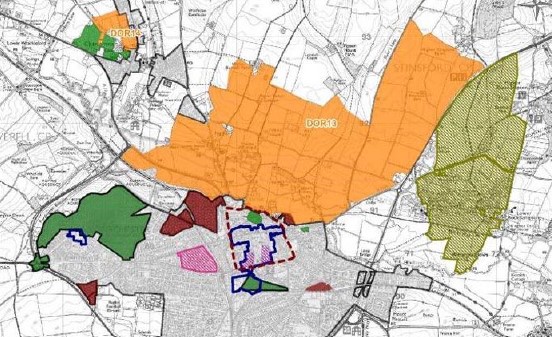An outcry from the public has forced Dorset Council to partially row back on plans to introduce a booking system at the tips.
The authority unveiled the plans to a cacophony of opposition last month, then bullishly told the public it was “determined to move forward” on the plans.
The authority wanted to spend £120,000 on a system which would see people having to book a slot to get rid of waste at any of its ten Household Recycling Centres.
But after huge opposition from the public, and among Conservative councillors the authority now says it will only start the scheme at four tips – Dorchester, Wimborne, Shaftesbury, and Sherborne. The costs would be similar for the reduced scheme.
A formal motion proposed by Swanage Conservative councillors Gary Suttle and seconded by Littlemoor and Preston Councillor Louie O’Leary states: “We call on this council to scrap its proposed blanket tip appointment system and instead look at the situation centre by centre in consultation with ward members and the general public.”


The next full council meeting on July 10 will hear debate on the plans, which will then go to a vote.
However it is feared the system, costing £20,000 a year to run, which would force people to book a 30-minute slot to even dispose of lawnmower clippings or a paint pot, is a done deal.
One complaint levelled at the scheme is that residents near a Dorset Council tip but who pay council tax to a neighbouring authority will be forced to drive miles to tip their waste, somewhat defeating the eco objectives of recycling.
One West Dorset resident told the WDM: “We did grandad’s gardening in Somerset and went to drop off at Crewkerne in Somerset where he paid council tax and ANPR set off we were from Dorset so would not let us drop it off.”
But the council says it will save money by ensuring only local residents are using the tips, and not people from either neighbouring counties, or businesses getting rid of waste for free when they should pay.
Many objectors have raised the point that similar schemes appear not to have worked in Shropshire and Wiltshire. Shropshire saw an increase of 20% in fly-tipping after introducing a booking system.
One Shropshire resident told the WDM: “They tried this nonsense in Shropshire.
“A few months after the booking system for the tip was introduced, they scrapped it as it was so unpopular.
“There was never a queue at the tip anyway.”
The cost of setting up the scheme would be soon recouped, says the council. But objectors believe the money will be wasted as the project is doomed to failure.
One said: “With this booking system costing £140k in its first year how is this cost saving unless the idea of the booking system is simply to reduce the number
of people that are able to use the recycling centre?
“I have lived in areas where this booking system is in place before returning to Dorset and I can assure you first hand, it doesn’t work.
“And you often had to wait up to two weeks or so until an appointment was available at a time you could fit it in.
“This could lead to garden waste sat around collecting rain for a few days until someone can dispose of it.
“At this point someone might not want to put that in their vehicle… So instead they load it up on the day and just throw it in a lay-by…
“Regardless of how you try and word it, anyone with half a brain can decipher that all this system is designed to do is restrict access. When we already have one of the highest council tax bills in the country here in Dorset, stifling our ability to use a simple service like the tip is, quite frankly, disgusting.”
A spokesperson for Dorset Council said: “While the system has generated significant public and political debate, it remains the most effective way to maintain the
current level of service without resorting to more disruptive and unpopular alternatives.
“Faced with rising operational costs, the council reviewed many cost-saving options, including reducing opening hours, closing sites on certain days, or even permanently shutting down some centres.
“These measures, while potentially saving more on paper, would have a far greater impact on residents’ access to highly-valued recycling services.”








